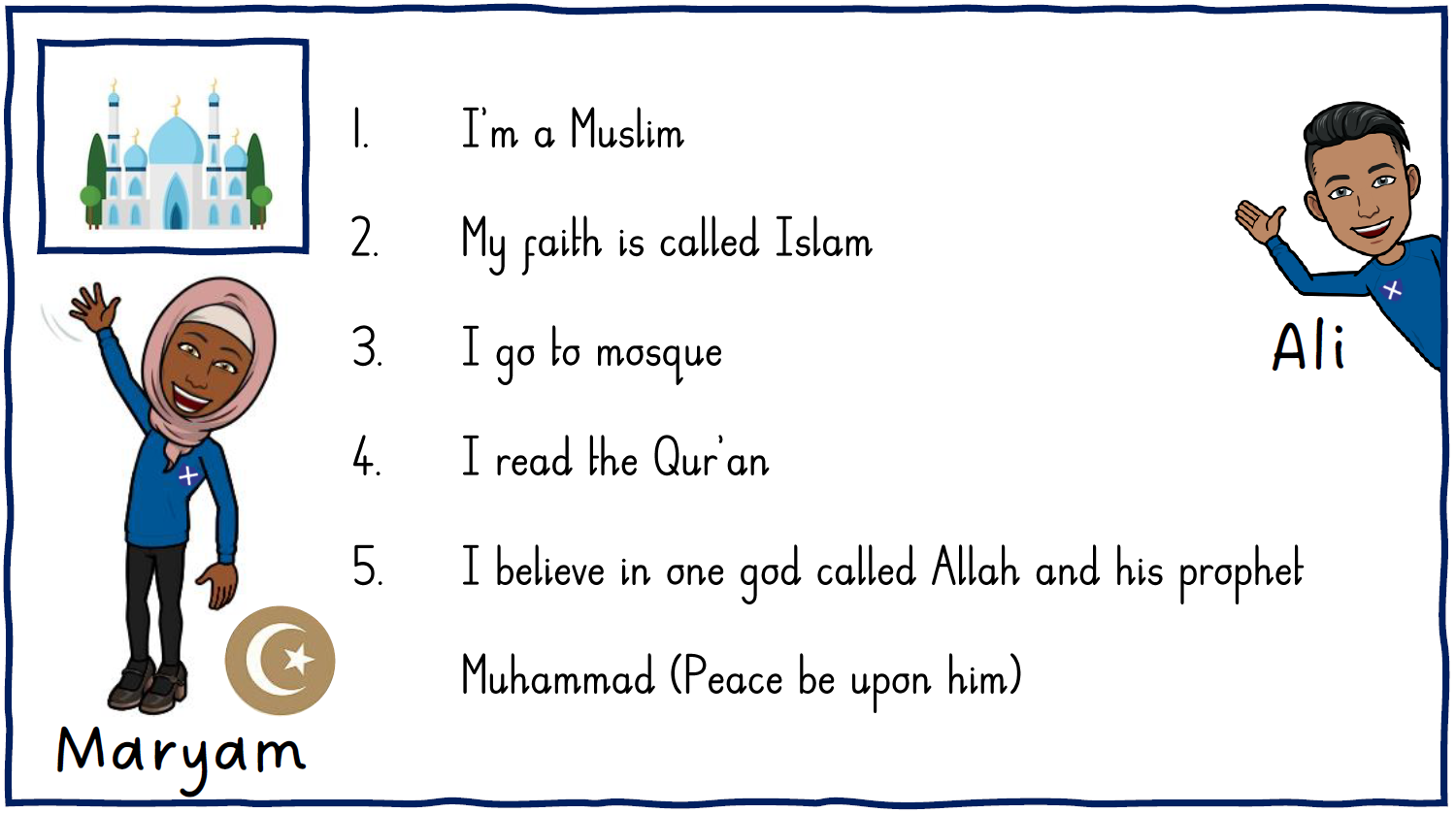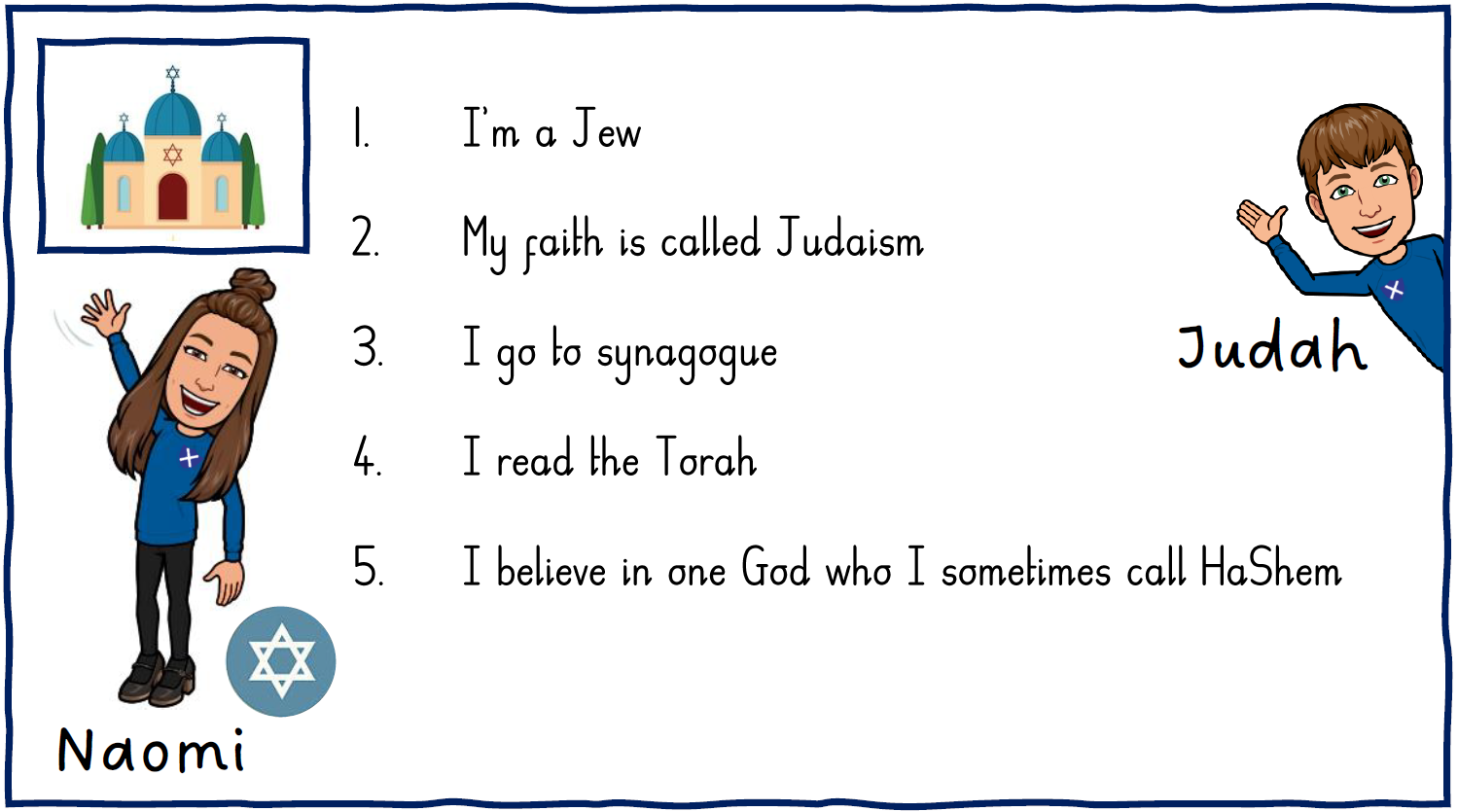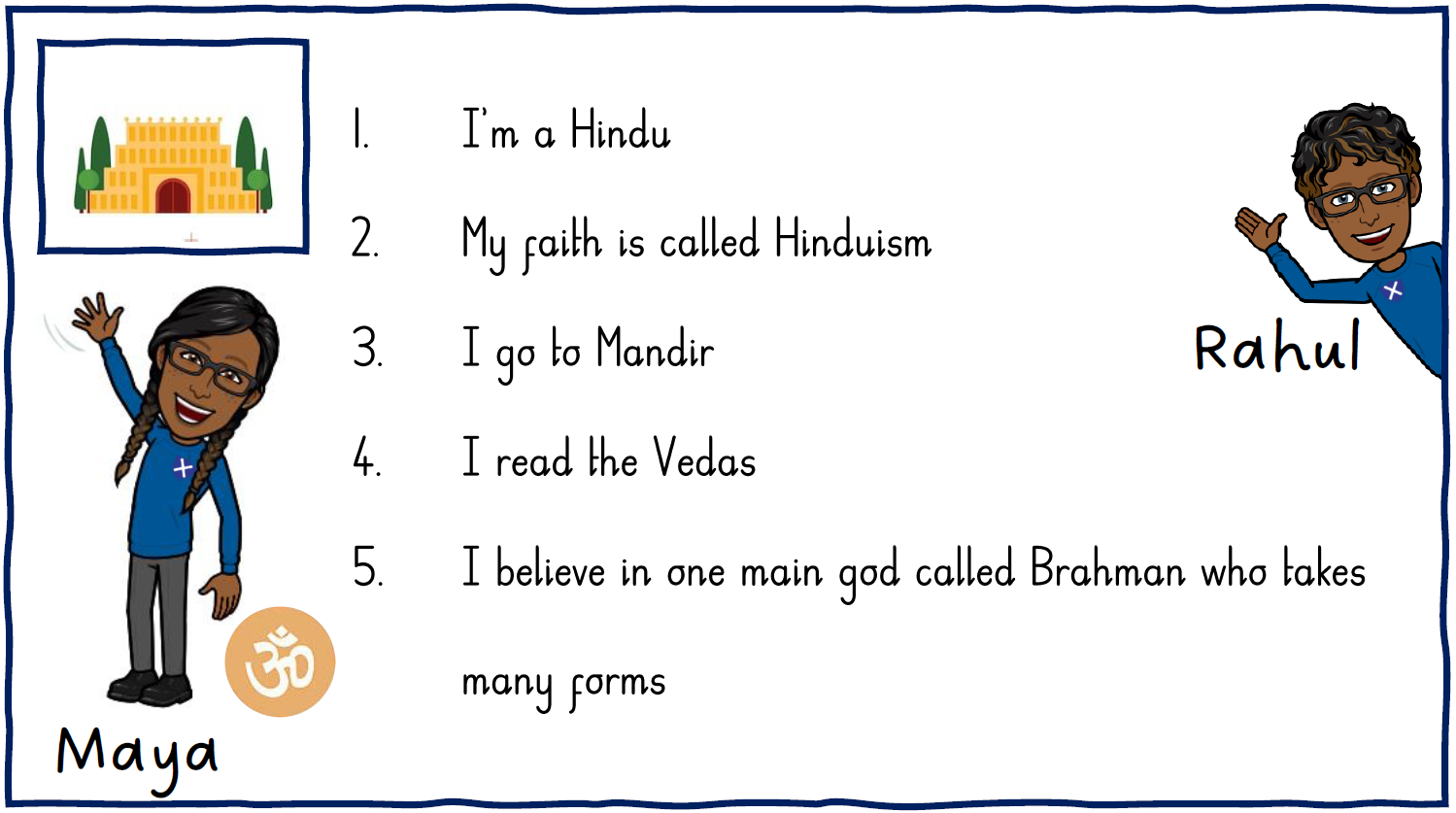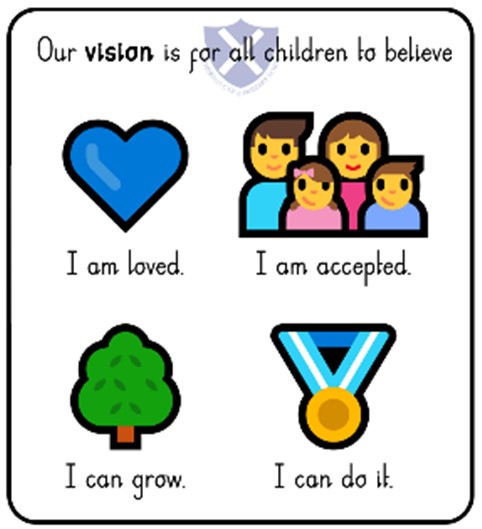Religious Education
Intent
As a Church of England school, we want all learners to be actively engaged in learning about both the Christian faith and other faiths whilst developing personally, socially and emotionally.
Our vision is for children to believe ’I can do it.’ We aim for all learners to be both knowledgeable in the subject academically and also able to develop their own belief system in a broader sense.
Our vision is for all children to believe ‘I can grow.’ The curriculum provides opportunity for both the academic study of religion and for reflection and development both as individuals and as an understanding, accepting and loving community.
Our vision is for all children to believe ‘I am accepted’ and ‘I am loved’. All children are expected to have a secure understanding of the key concepts underpinning different faiths and, in the context of Christianity, be able to see the Bible as a ‘big story’ within which the children develop a greater sense of chronology.
Implementation
As a school within the Diocese of Worcester Multi-Academy Trust, schemes of work are written in line with the Locally Agreed Syllabus for Worcestershire and developed alongside ‘Understanding Christianity’ to support the teaching of Christianity. Schemes of work ‘spiral’ through the Key Stages and offer repeated opportunities to return to the same key concepts in more breadth and depth as children move through school. The curriculum gradually expands through the Key Stages to ensure children become fluent in their understanding of different faiths and beliefs. Children are taught about the faiths of Christianity, Judaism, Islam, Hinduism and also non-religious worldviews such as Humanism.
RE is taught weekly throughout the year to ensure depth and breadth appropriate to the year group. Each year group undertakes 7 units of work per year and the allocated time goes above the legal expectation on hours spent on the subject in both Key Stages. Where appropriate, units are planned to coincide with religious festivals. Progression across school is clear and challenge is evident by implementing a spiral curriculum. This is supported in key units, where a concept is taught across all year groups at different depths, with a progression document detailing the expectations for each year group and how these build on the previous year group. Progression is established for texts used, depth of study and vocabulary. Learners are also required to begin to piece together the historical and geographical relationship Christianity has with both Judaism and Islam which are two other faiths taught in more depth. Through the incremental structure of the planning, within and across year groups, learners are actively encouraged to grapple with key questions and continuously make connections. Vocabulary is key to learning in RE. Appropriate and progressive technical vocabulary is taught and revisited alongside these key concepts to ensure religious literacy is built across the year groups.
The teaching of RE is monitored by the RE subject leader and also by the Church School Team and Governors. This overview allows for rigorous monitoring through lesson observations, work scrutiny, staff feedback and pupil voice by both the subject leader and other senior staff within the school which helps to ensure quality first teaching of the subject.
Appropriate links and opportunities can also be identified with the Collective Worship programme which seeks to actively support RE within school. Trips and visits are promoted to provide children with opportunities to engage more actively with a concept. Resources are also well-stocked.
Impact
By the end of Year 6, children will have a clear understanding of key concepts within Christianity, Judaism, Islam and Hinduism. All children will be equipped with the appropriate language and skills to grapple with complex questions and respond both academically and with their own reasoned opinions. As children progress through school, they develop knowledge and understanding that is both broad and deep. Work produced in RE books shows progression and high levels of challenge across the school with children showing correct use of vocabulary fluently across various units of work. Children are enthusiastic about the subject and are eager to learn more and engage with difficult and thought-provoking questions. When children leave the school, they are well-equipped to grapple with the RE curriculum for Key Stage 3 and continue to grow as reflective individuals.
Characteristics of a Theologist
- likes to investigate
- can make comparisons
- is curious
- shows empathy
- draws conclusions
- considers evidence
- has self-awareness
- is respectful of others
- can discuss and debate politely
- is willing to change their position
Potential Careers
- Advice worker
- Archivist
- Charity officer
- Chaplain
- Civil Service administrator
- Community development worker
- Equality, diversity and inclusion officer
- International aid worker
- Mediator
- Newspaper journalist
- Policy officer
- Politician’s assistant
- Solicitor
- Teacher
- Youth worker
Road Map
Curriculum Coverage Map
Curriculum Progression Documents
RE Progression Document - Incarnation
RE Progression Document - Salvation
Knowledge Organisers
Year 1 - What does it mean to belong to a faith community?
Year 3 - How and why do people mark the significant events in life?
Year 3 - What do Hindus believe God is like?
Year 3 - Creation and the Fall
Year 4 - How and why do people try to make the world a better place?
Year 4 - What does it mean to be a Hindu in Britain today?
Year 5 - What matters most to Humanists and Christians?
Year 5 - How does faith help people when life gets hard?
Year 6 - Creation and the Fall
Year 6 - Why do Hindus try to be good?
Year 6 - Why do some people believe in God and some people not?
RE Statement of Entitlement
RE Statement of Entitlement for Church Schools
Religious Education Anchor Characters
At Netherton CE Primary, all of our Religious Education is anchored by key characters for each faith studied and for non-religious views worldwide.
Take a look below to meet our anchor characters.








